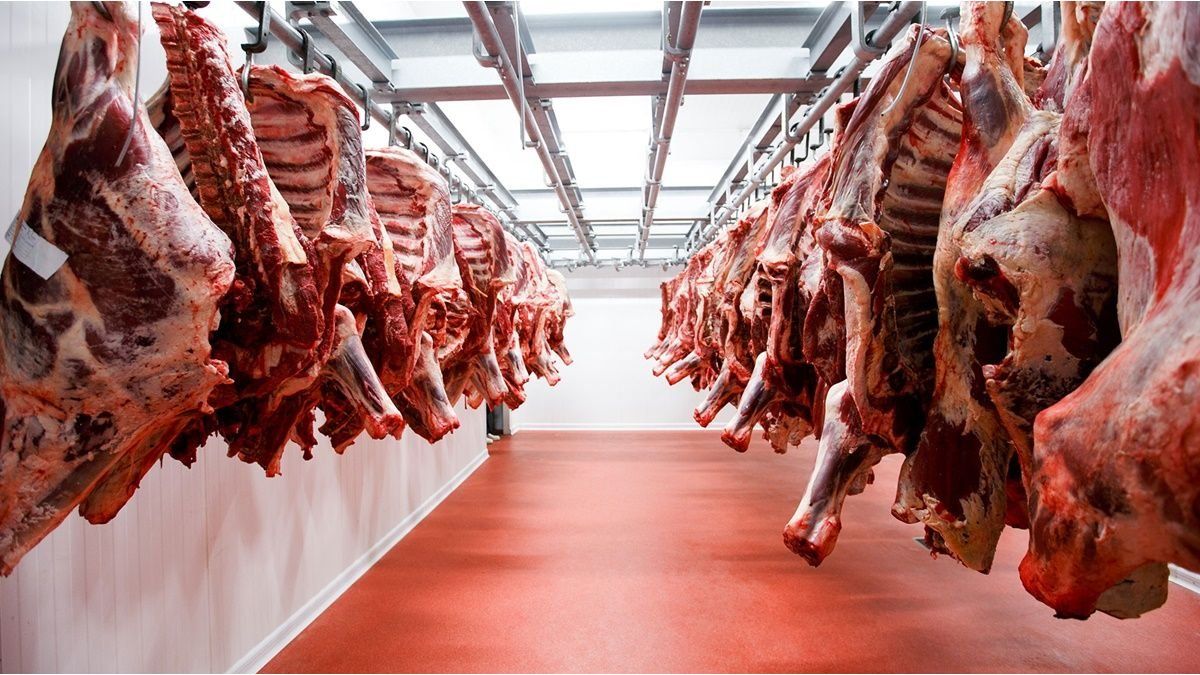Consumer prices
Chancellor’s push for less VAT on food
Copy the current link
At the checkout in the supermarket, consumers notice inflation clearly – many products have become more expensive. Now the Chancellor is discussing a price cap via tax.
In view of the continued rise in prices in supermarkets, Chancellor Olaf Scholz is proposing a reduction in the reduced VAT rate for food from 7 to 5 percent. “That would help a lot of people who earn little money, and it wouldn’t be an excessive burden on the federal budget,” said the SPD politician on the ARD “Tagesthemen”. Criticism came from retailers and the opposition, while consumer representatives welcomed the approach. Food has long been the driver of inflation, which has now weakened.
Advance in election campaign times
With his surprising move in the upcoming federal election campaign, the Chancellor is reigniting the long-simmering debate about broad relief. It is important “that we do something very manageable that everyone notices every day when it comes to their daily needs” – namely at the supermarket checkout. “Some people are quite amazed at how much money they’ve collected for the basket they’ve filled.”
In fact, prices for many foods have long risen faster than general inflation. According to the Federal Statistical Office, they increased in price by more than 30 percent between 2020 and 2023. However, price inflation weakened in November. Food prices were 1.8 percent higher than a year earlier – with overall inflation of 2.2 percent. Butter (plus 38.9 percent) and olive oil (plus 13.3 percent), for example, were significantly more expensive compared to November 2023.
Reduced tax rate for many foods
There is always debate about VAT as an adjusting screw. The reduced tax rate of 7 percent currently applies to food for many people. These include sugar, flour, potatoes, vegetables and fruit, tea and coffee, nuts, milk and dairy products as well as meat, fish, raw eggs and honey. The regular rate of 19 percent applies to processed products and drinks. There is also criticism of the classifications: the Federal Audit Office explained that 19 percent is due for a “coffee to go” with a dash of milk – but 7 percent is due for a latte macchiato with foamed milk and espresso.
Most recently, a temporary reduction in the reduced tax rate of 7 percent on food in restaurants expired at the end of 2023. Food Minister Cem Özdemir (Greens) has since suggested a slight increase in the reduced rate of 7 percent on meat in order to finance the restructuring of animal husbandry. A citizens’ assembly appointed by the Bundestag proposed, among other things, zero percent tax on organic fruit and vegetables from the EU. However, none of this was specifically implemented in Scholz’s traffic light coalition.
Criticism from the Union and business
Union parliamentary group vice-president Mathias Middelberg (CDU) promptly spoke of “cheap campaign bait”. What would make sense would be “a targeted relief for low-income earners in terms of taxes and social security contributions, which is reliably achieved and makes working more worthwhile in relation to the receipt of citizen’s benefit.” The general secretary of the farmers’ association, Bernhard Krüsken, told the “Rheinische Post” that a VAT reduction would make sense if it applied to all food. “That would help consumers and farmers.”
The extent to which a reduction would affect private households is controversial. Each company decides for itself whether to pass on tax savings – whether the end consumers benefit is therefore uncertain, explained the Federal Audit Office. FDP Vice President Wolfgang Kubicki wrote on Platform The total volume would also have to be calculated. According to the Ministry of Finance from 2023, VAT revenue from foodstuffs subject to reduced taxation was estimated at 16.5 billion euros.
Different effects depending on income
Sebastian Dullien, scientific director of the Institute for Macroeconomics and Economic Research at the trade union Hans Böckler Foundation, does not believe a reduction in VAT makes sense. In absolute terms, people with higher incomes would even benefit more. “Calculated in euros, the relief for a kilo of French cheese from the gourmet shop would be higher than for the packaged slice of Gouda.”
According to Dullien, a two-person household that spends 450 euros a month on groceries at the reduced tax rate would save around 8 euros a month as a result of the measure. However, only if the tax cut is completely passed on by retailers in lower prices. “The funds for a VAT reduction on food could be used more specifically to increase child benefit,” said the economist.
Demand for zero percent tax
The German trade association rejected the Chancellor’s proposal. “Reductions in VAT are relief with a watering can, that is not precise,” said Managing Director Stefan Genth. VAT law is already complicated. Administration is already expensive enough for companies, with costs of one to four percent of sales. If new reductions were added, the costs would continue to rise.
For the social association VdK, the Chancellor’s proposal goes in the right direction, but not yet far enough. “Due to the still high inflation rate, especially for food, more and more people are reaching their financial limits,” said President Verena Bentele. Low-earning, poor pensioners and recipients of basic security suffered particularly from this. The VdK therefore called for the VAT on basic foods to be reduced to zero percent. CSU boss Markus Söder also spoke out in favor of this in 2023.
dpa
Source: Stern




